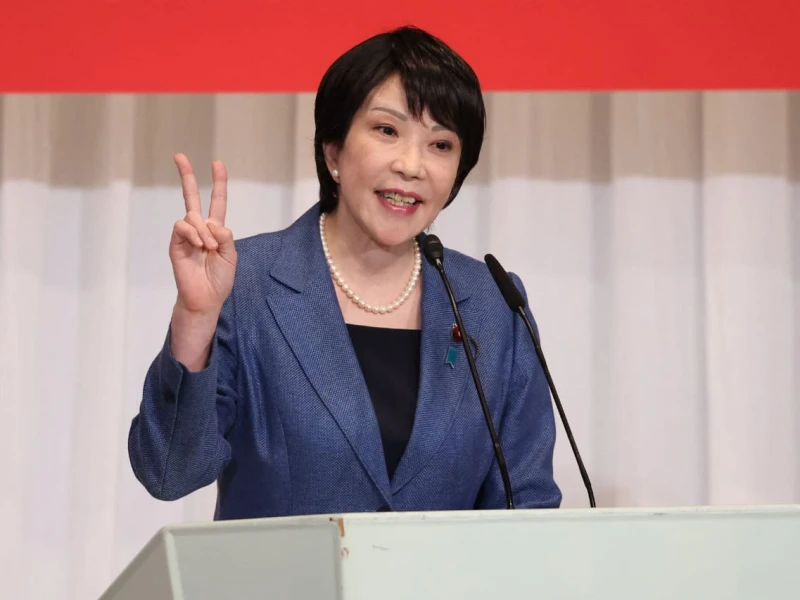Japan’s ruling Liberal Democratic Party (LDP) has elected Sanae Takaichi as its new leader, paving the way for the 64-year-old conservative politician to become the country’s first female prime minister.
Takaichi, a veteran lawmaker known for her staunch right-wing views, secured victory in the party leadership race on Friday, following weeks of intense campaigning within the LDP.
Her election comes after outgoing Prime Minister Shigeru Ishiba announced his resignation last month, citing a series of electoral setbacks that cost the ruling coalition its majority in both chambers of parliament.
A protégé of the late former leader Shinzo Abe, Takaichi has vowed to revive his signature economic policies — known as Abenomics — focusing on aggressive fiscal spending and easy monetary policy to stimulate growth.
She inherits a sluggish economy marked by persistent inflation, stagnant wages, and growing frustration among Japanese households.
Takaichi’s ascension marks a historic moment for Japan, which has never had a female prime minister. However, her conservative stances on social issues have drawn criticism, particularly from women voters.
She has long opposed legislation that would allow married couples to retain separate surnames, calling it a break from Japanese tradition, and she remains firmly against legalising same-sex marriage.
On the foreign policy front, Takaichi is expected to take a hawkish stance on national security and has expressed her intention to revise Japan’s pacifist constitution. She also plans to strengthen defence cooperation with the United States, while managing what observers describe as a “rocky” phase in bilateral relations.
Takaichi’s frequent visits to the controversial Yasukuni Shrine — which honours Japan’s war dead, including convicted war criminals — have often sparked anger in neighbouring China and South Korea.
Once confirmed by parliament, Takaichi will face the formidable task of uniting a divided LDP and restoring voter confidence after years of internal strife and corruption scandals.
Unlike many of her predecessors, she is not guaranteed an automatic confirmation, as the ruling party no longer holds a majority in either house.
Admired by some conservatives as Japan’s answer to Margaret Thatcher — whom she has often cited as a political role model — Takaichi now stands on the threshold of realising her long-held ambition to become Japan’s “Iron Lady.”
#BBC


 Prev Post :
Prev Post :
